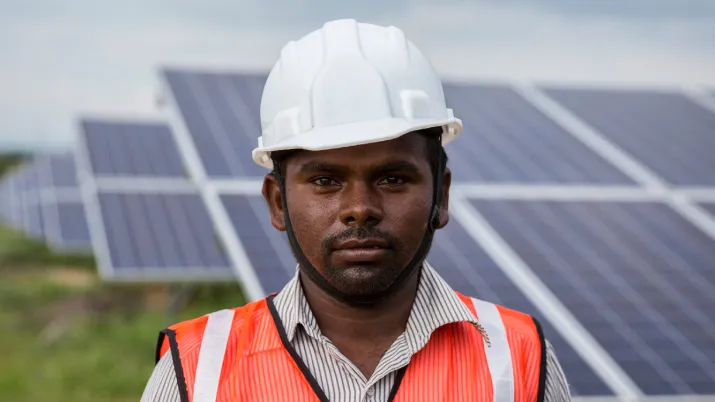Share the page
From Delhi to Paris: India on the path to resilient urban waste management
Published on
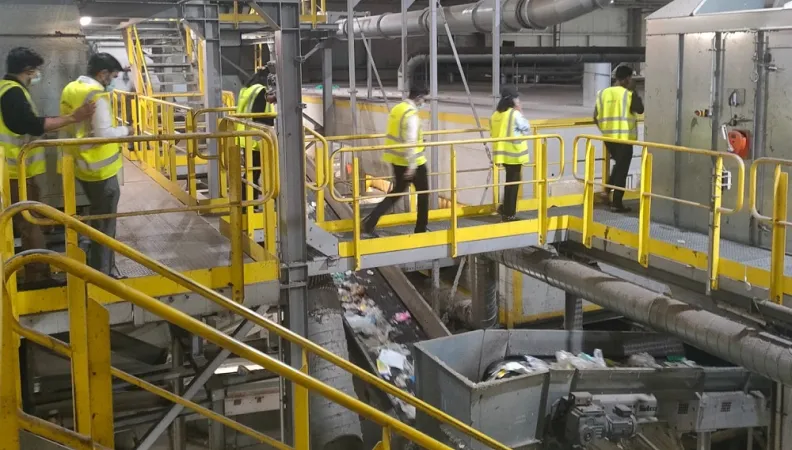
Faced with rapid urbanization, India is grappling with a major challenge: organizing, modernizing, and financing its solid waste management system. From 7 to 9 July 2025, a delegation of senior Indian government officials toured behind the scenes of French infrastructure as part of a study visit supported through a loan co-financed by AFD and KfW, with an additional grant from the European Union.
In the town of Ivry-sur-Seine, on the construction site of Syctom's future waste-to-energy unit – Syctom being the joint municipal agency responsible for household waste treatment across 82 local authorities in the Île-de-France region, including the City of Paris – a mechanical claw plunges into a giant pit and rises back up, clutching several tons of trash. "It can lift up to five tons in a single move," notes a technician. Behind the glass, twelve members of the Indian delegation observe in silence. It's not the smell – absent thanks to careful containment – that leaves an impression, but the sheer scale of the facility. This next-generation plant is set to replace a 40-year-old unit and enter service in early 2026.
A diverse delegation from across India
The delegation included representatives from India’s Ministry of Housing and Urban Affairs (MoHUA), as well as six federal states – Bihar (northeast), Chhattisgarh (east-central), Jammu and Kashmir (north), Tamil Nadu (south), Tripura (northeast), and Uttar Pradesh (north). Among them were senior civil servants, Municipal Commissioners (the equivalent of metropolitan prefects), and State Mission Directors responsible for implementing national programs such as the Swachh Bharat Mission – Urban (SBM-U), a large-scale sanitation and solid waste management initiative launched in 2014.
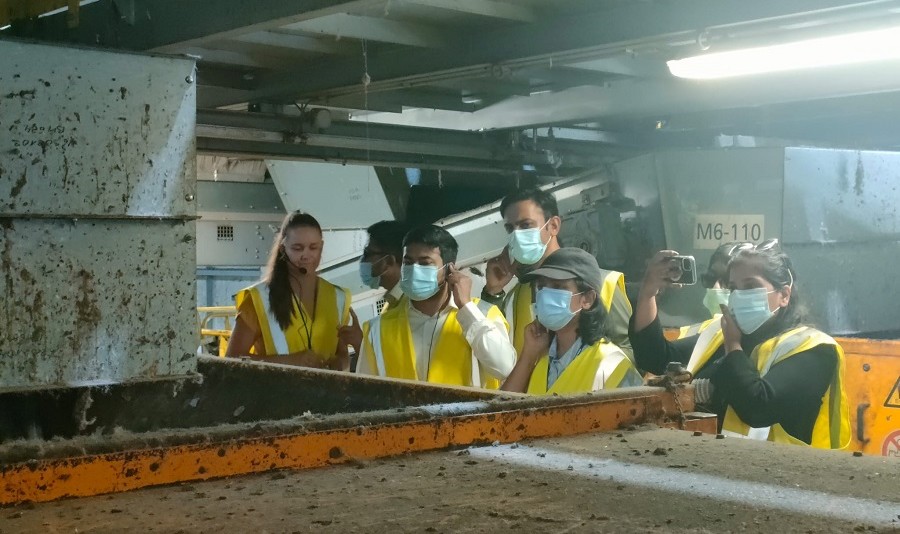
The challenges are considerable. While India’s urban population is growing at an unprecedented pace, infrastructure development is struggling to keep up. Some cities are starting from scratch to build integrated waste management systems. Others are combining decentralized mechanisms and informal models, including didis (community workers responsible for sorting and awareness) and kabadiwalas (street recyclers who collect and resell recoverable waste). These informal circular economy actors play a vital role, yet remain precarious and underrepresented in public policy.
"We're not here to copy, but to understand what can be adapted to our context," one participant explained. Each state has its own priorities: Tamil Nadu is investing in biomethanation, while in Chhattisgarh, waste is sorted in Solid & Liquid Resource Management (SLRM) centers managed by didis.
The study tour: a cornerstone of the CITIIS 2.0 program
The study tour was designed to support these reflections – a format still little known outside expert circles. Over three days, the delegation visited several key sites: Veolia's landfill and recovery center in Claye-Souilly, Paprec's recycling facility in Oise, and the Paris 2024 Olympic Village, a showcase of circular urbanism.
The initiative is part of a broader, multidimensional project: the CITIIS 2.0 program (City Investments to Innovate, Integrate and Sustain). Led by India’s Ministry of Housing and Urban Affairs, the program is co-financed through loans from AFD (€100 million) and KfW (€100 million), along with €12 million in financial support from the European Union. It supports 18 cities and 21 Indian states in modernizing their waste management systems, with expected benefits for climate, public health, and air quality. This commitment is fully aligned with the European Union’s Global Gateway strategy – its flagship initiative to deliver sustainable investment for people and the planet.
The program's technical implementation is overseen by the National Institute of Urban Affairs (NIUA), one of India’s leading urban policy think tanks. NIUA coordinates exchanges between cities, supports project development, and facilitates knowledge sharing at the national level. Its role is especially crucial as it serves as a bridge between local governments, state authorities, and international partners, ensuring coherent and continuous cooperation.
"The circular economy is a complex chain, from source separation to the resale of recycled materials," says Nitesh Chandrakar, waste expert at AFD’s New Delhi office. "It requires innovation, but above all, close coordination between public services, private actors, and local communities."
Learning from France, applying in India
"What we saw is impressive, but it needs to be adapted," notes Basava Raju S., Secretary for Urban Development in Chhattisgarh. In India, organic recovery, composting, and biogas are already being tested. However, the level of investment seen in France – nearly €700 million for the Ivry plant – is out of reach without a leaner model.
"What would the real cost of these models be once adapted to our context? What technologies, standards, and human resources would be required?" asks Vikram Virkar, Municipal Commissioner of Muzaffarpur, a major city in the state of Bihar.
Building bridges and partnerships
Organized by Efficacity—the French R&D institute for the urban energy and ecological transition – with support from Business France, the visit also included a high-level plenary session with representatives from MoHUA and the six participating states. Discussions focused on sustainable waste management, resource recovery, and air quality.
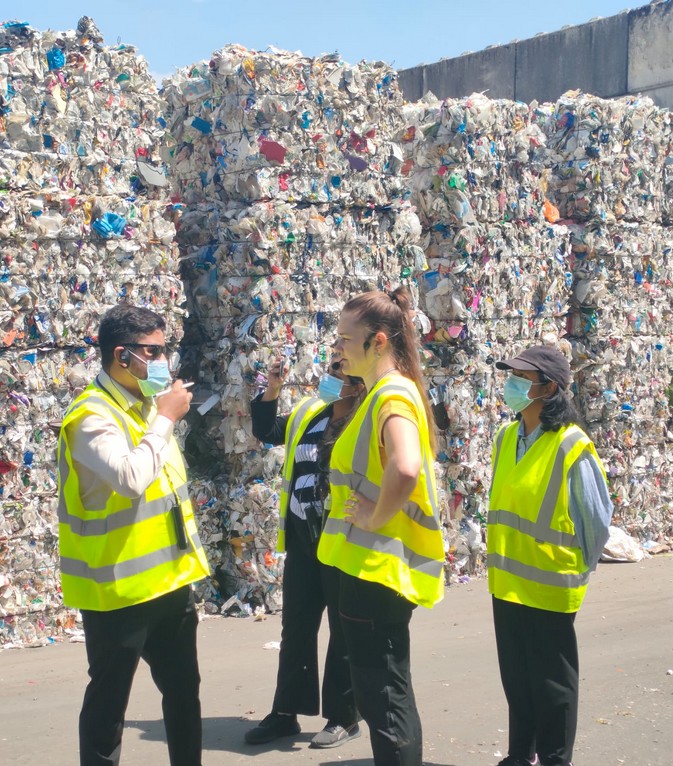
During this session, French companies such as Acoem, Airinspace, ARIA Technologies – SUEZ Air & Climate, Ellona, and Pando2 presented innovative solutions: air pollution monitoring, connected sensors, air treatment, predictive modeling… technologies that could support future joint projects.
"The idea is to identify industrial partnerships with technology transfer," explains Julien Couchouron, head of Industry & Cleantech at Business France.
Archana Jayaraman, urban resilience specialist at KfW, adds "This kind of mission gives real meaning to fieldwork. It’s not about copying a model, but understanding, adapting, and translating it to the scale of Indian cities."
Technical diplomacy grounded in reality
Beyond infrastructure, different governance models also come into play. In India, every project must prove its social and economic value. "Job creation is a non-negotiable criterion for us," a senior official from MoHUA notes.
By connecting field actors, the study tour facilitates dialogue – and potentially opens new paths for cooperation, especially as India considers bidding to host the 2036 Olympic Games.
From Ivry to Indore, one thing is clear: today's waste can become tomorrow’s resource. But the right ecosystem is needed – not only to transform it, but to reduce its generation in the first place.
"Just like the cleanest kilowatt-hour is the one that isn’t consumed, reducing waste production is the foundation of a virtuous circular economy," concludes Fabrice Juquois, solid waste project team leader at AFD. "In this regard, communication, awareness, and training – for both communities and decision-makers, as supported by the CITIIS 2.0 project during this study visit and in every participating city – are the key to driving the behavioral change needed for better source separation and more sustainable consumption."
Find out more
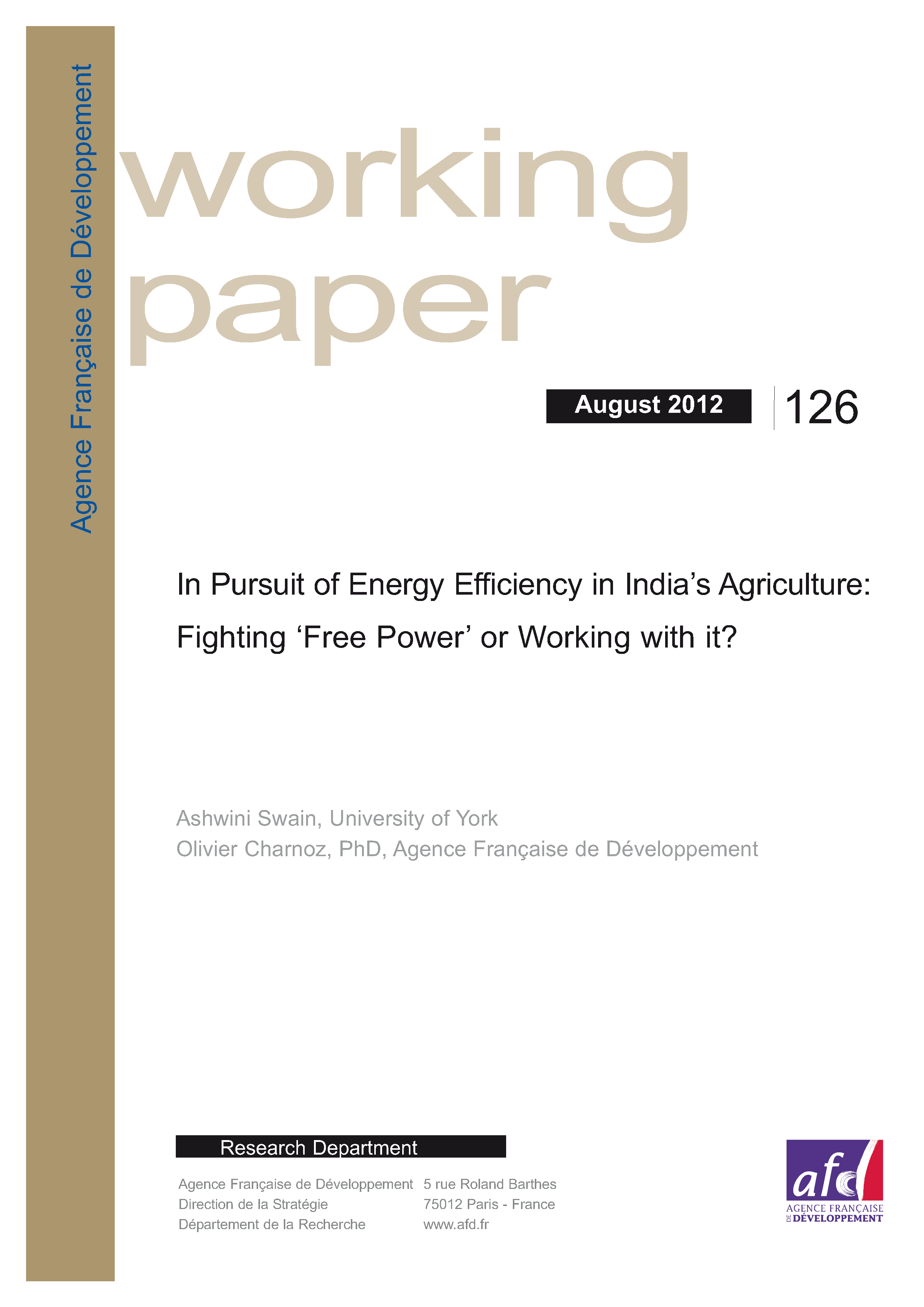
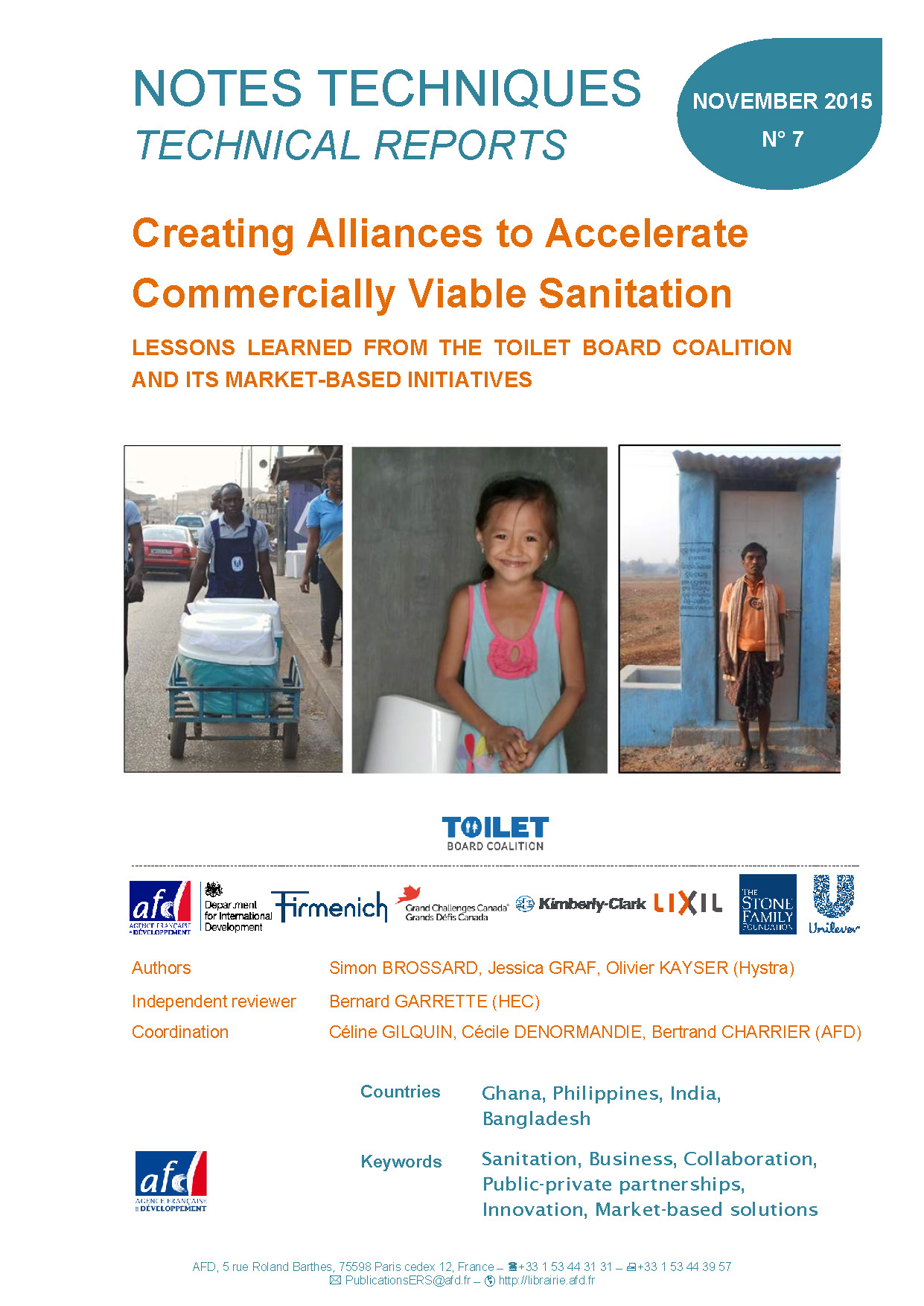
Our action in India
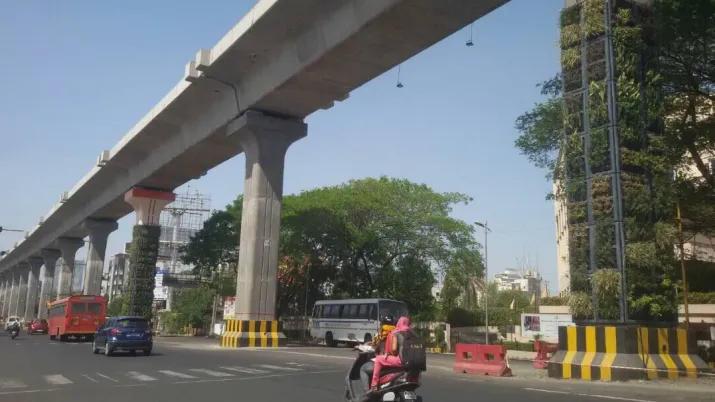
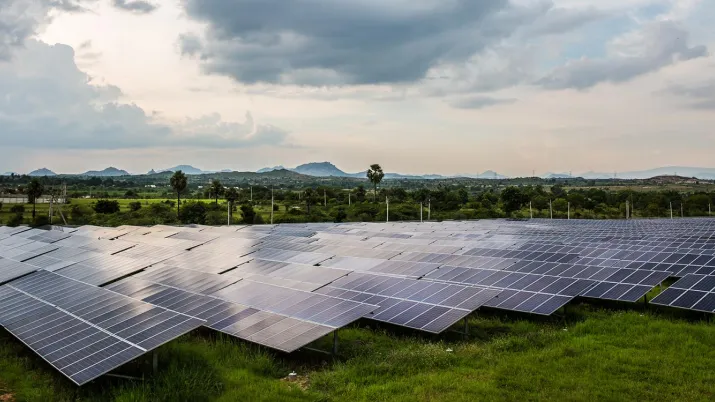
Supporting sustainable, innovative, and inclusive urban development through the CITIIS program
Sustainable, innovative and participative urban development through CITIIS
Under the Indian Government's Smart Cities Mission, the CITIIS program seeks to provide financial and technical support to projects focused on innovative urban development, selected through a national...
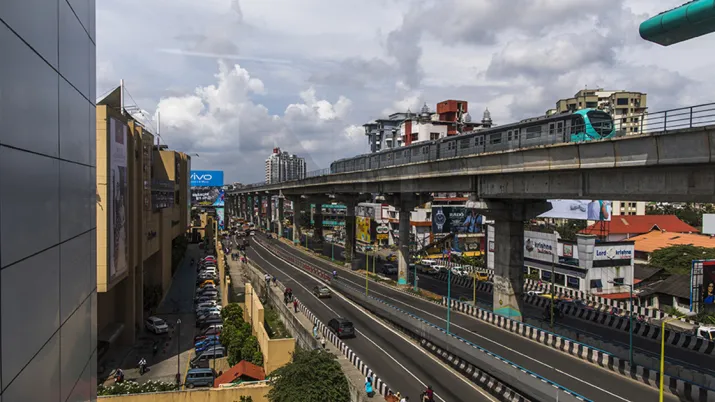
- When ?
-
2018
Status
Ongoing
- Location
- India
- Financing tool
- Délégation de fonds de l'Union européenne, Prêt souverain

